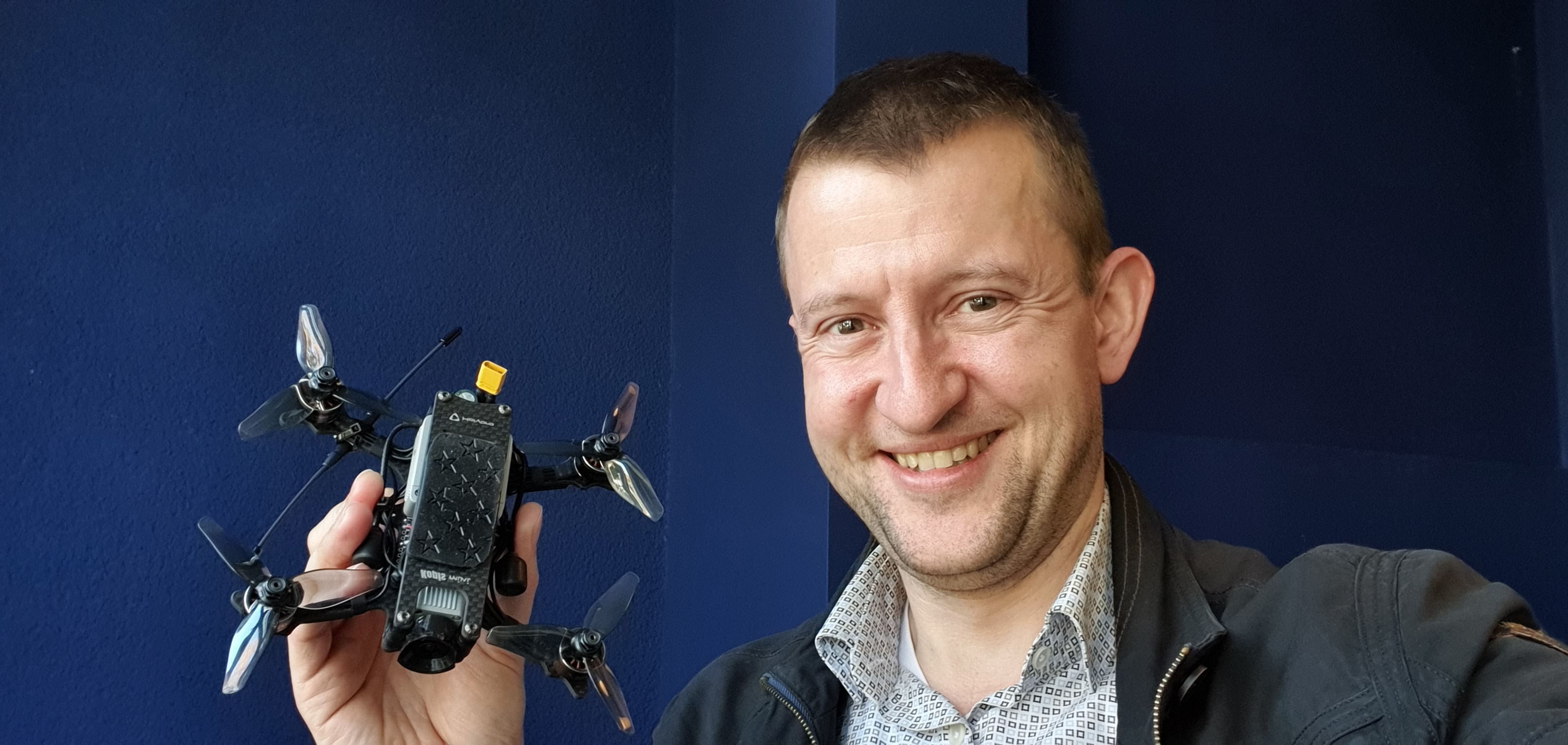NWO VIDI for research to give robots awareness of their physical limitations
This week, the Dutch Research Council (NWO) has awarded a VIDI grant worth € 800,000 to Dr. Coen de Visser of the Faculty of Aerospace Engineering. This will enable him to develop his own innovative line of research and set up a research group over the next five years.
De Visser receives the VIDI for his research into the forecasting of safe operating envelopes for autonomous robots. "Robots will play an important role in our daily lives in the near future, but only if they are safe enough. I want to develop a new system that will give robots an awareness of their physical limitations, even after failure. This will allow robots to safely recover from dangerous situations,' says De Visser about his research.
With the resources of the VIDI, De Visser will develop a new smart algorithm (4SENCE) that can capture this physical awareness in a mathematical form; the so-called 'safe envelope'. De Visser: "A robot equipped with 4SENCE becomes effectively aware of its physical limitations, and can thus make smart decisions about how to deal with small and large damages. Take, for example, an inspection drone that breaks down an engine. At the moment, the drone is done, and will fall down uncontrollably with potentially fatal consequences. With 4SENCE such a catastrophic situation could be avoided and the drone can make a controlled emergency landing or, if possible within the limits of the safe envelope, even complete the original inspection with reduced capacity".
Until now, the development of such methods has been held back by major uncertainties in the system models used. By making a new link to another field of science that deals with the study of critical transitions, the so-called 'tipping points', De Visser has discovered a way to minimise these uncertainties, which makes it possible to accurately predict the safe envelope. De Visser will collaborate with Prof. Alessandro Abate of Oxford University and Prof. Marten Scheffer of Wageningen University & Research for this research.
A total of 503 researchers submitted an admissible research proposal for funding in this Vidi round. Of these, 81 have now been granted, four of which at TU Delft.
